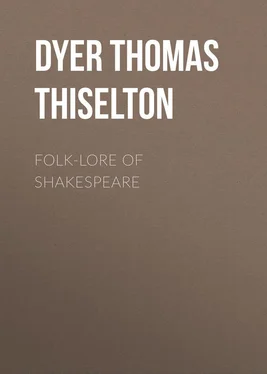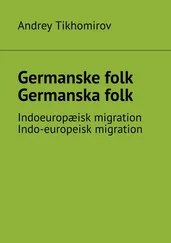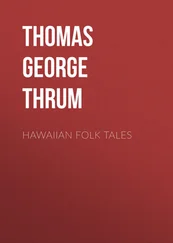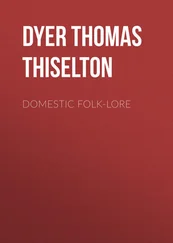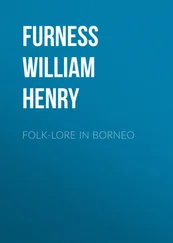Thomas Dyer - Folk-lore of Shakespeare
Здесь есть возможность читать онлайн «Thomas Dyer - Folk-lore of Shakespeare» — ознакомительный отрывок электронной книги совершенно бесплатно, а после прочтения отрывка купить полную версию. В некоторых случаях можно слушать аудио, скачать через торрент в формате fb2 и присутствует краткое содержание. Жанр: foreign_antique, foreign_prose, на английском языке. Описание произведения, (предисловие) а так же отзывы посетителей доступны на портале библиотеки ЛибКат.
- Название:Folk-lore of Shakespeare
- Автор:
- Жанр:
- Год:неизвестен
- ISBN:нет данных
- Рейтинг книги:4 / 5. Голосов: 1
-
Избранное:Добавить в избранное
- Отзывы:
-
Ваша оценка:
- 80
- 1
- 2
- 3
- 4
- 5
Folk-lore of Shakespeare: краткое содержание, описание и аннотация
Предлагаем к чтению аннотацию, описание, краткое содержание или предисловие (зависит от того, что написал сам автор книги «Folk-lore of Shakespeare»). Если вы не нашли необходимую информацию о книге — напишите в комментариях, мы постараемся отыскать её.
Folk-lore of Shakespeare — читать онлайн ознакомительный отрывок
Ниже представлен текст книги, разбитый по страницам. Система сохранения места последней прочитанной страницы, позволяет с удобством читать онлайн бесплатно книгу «Folk-lore of Shakespeare», без необходимости каждый раз заново искать на чём Вы остановились. Поставьте закладку, и сможете в любой момент перейти на страницу, на которой закончили чтение.
Интервал:
Закладка:
Another epithet applied to Puck is “Lob,” as in the “Midsummer-Night’s Dream” (ii. 1), where he is addressed by the fairy as
“Thou lob of spirits.” 16 16 Mr. Dyce considers that Lob is descriptive of the contrast between Puck’s square figure and the airy shapes of the other fairies.
With this we may compare the “lubber-fiend” of Milton, and the following in Beaumont and Fletcher’s “Knight of the Burning Pestle” (iii. 4): “There is a pretty tale of a witch that had the devil’s mark about her, that had a giant to be her son, that was called Lob-lye-by-the-Fire.” Grimm 17 17 “Deutsche Mythologie,” p. 492.
mentions a spirit, named the “Good Lubber,” to whom the bones of animals used to be offered at Manseld, in Germany. Once more, the phrase of “being in,” or “getting into Lob’s pound,” is easy of explanation, presuming Lob to be a fairy epithet – the term being equivalent to Poake-ledden or Pixy-led. 18 18 See Keightley’s “Fairy Mythology,” pp. 318, 319.
In “Hudibras” this term is employed as a name for the stocks in which the knight puts Crowdero:
“Crowdero, whom in irons bound,
Thou basely threw’st into Lob’s pound .”
It occurs, also, in Massinger’s “Duke of Milan” (iii. 2), where it means “behind the arras:”
“Who forc’d the gentleman, to save her credit,
To marry her, and say he was the party
Found in Lob’s pound.”
The allusion by Shakespeare to the “Will-o’-the-Wisp,” where he speaks of Puck as “sometime a fire,” is noticed elsewhere, this being one of the forms under which this fairy was supposed to play his midnight pranks.
Referring, in the next place, to the several names of Shakespeare’s fairies, we may quote from “The Merry Wives of Windsor” (iv. 3), where Mrs. Page speaks of “urchins, ouphes, and fairies” – urchin having been an appellation for one class of fairies. In the “Maydes’ Metamorphosis” of Lyly (1600), we find fairies, elves, and urchins separately accommodated with dances for their use. The following is the urchin’s dance:
“By the moone we sport and play,
With the night begins our day;
As we frisk the dew doth fall,
Trip it, little urchins all,
Lightly as the little bee,
Two by two, and three by three,
And about goe wee, goe wee.”
In “The Tempest” (i. 2) their actions are also limited to the night:
“Urchins
Shall, for that vast of night that they may work,
All exercise on thee.”
The children employed to torment Falstaff, in “The Merry Wives of Windsor” (iv. 4), were to be dressed in these fairy shapes.
Mr. Douce regards the word urchin , when used to designate a fairy, as of Celtic origin, with which view Mr. Thoms 19 19 “Three Notelets on Shakespeare,” pp. 79-82.
compares the urisks of Highland fairies.
The term ouphe , according to Grimm, is only another form of the cognate elf , which corresponds with the Middle High-German ulf , in the plural ulve . He further proves the identity of this ulf with alp , and with our English elf , from a Swedish song published by Asdwiddson, in his “Collection of Swedish Ballads,” in one version of which the elfin king is called Herr Elfver , and in the second Herr Ulfver .
The name elf , which is frequently used by Shakespeare, is the same as the Anglo-Saxon alf , the Old High-German and the Middle High-German ulf . “Fairies and elvs,” says Tollet, “are frequently mentioned together in the poets without any distinction of character that I can recollect.”
The other fairies, Peas-blossom, Cobweb, Moth, and Mustard-seed probably owe their appellations to the poet himself.
How fully Shakespeare has described the characteristics of the fairy tribe, besides giving a detailed account of their habits and doings, may be gathered from the following pages, in which we have briefly enumerated the various items of fairy lore as scattered through the poet’s writings.
Beauty, then, united with power, was one of the popular characteristics of the fairy tribe. Such was that of the “Fairy Queen” of Spenser, and of Titania in “A Midsummer-Night’s Dream.” In “Antony and Cleopatra” (iv. 8), Antony, on seeing Cleopatra enter, says to Scarus:
“To this great fairy I’ll commend thy acts,
Make her thanks bless thee.”
In “Cymbeline” (iii. 6), when the two brothers find Imogen in their cave, Belarius exclaims:
“But that it eats our victuals, I should think
Here were a fairy.” 20 20 Showing, as Mr. Ritson says, that they never ate.
And he then adds:
“By Jupiter, an angel! or, if not,
An earthly paragon! behold divineness
No elder than a boy.”
The fairies, as represented in many of our old legends and folk-tales, are generally noticeable for their beauty, the same being the case with all their surroundings. As Sir Walter Scott, 21 21 “Letters on Demonology and Witchcraft,” 1831, p. 121.
too, says, “Their pageants and court entertainments comprehended all that the imagination could conceive of what were accounted gallant and splendid. At their processions they paraded more beautiful steeds than those of mere earthly parentage. The hawks and hounds which they employed in their chase were of the first race. At their daily banquets, the board was set forth with a splendor which the proudest kings of the earth dared not aspire to, and the hall of their dancers echoed to the most exquisite music.”
Mr. Douce 22 22 “Illustrations of Shakespeare,” p. 115.
quotes from the romance of “Lancelot of the Lake,” where the author, speaking of the days of King Arthur, says, “En celui temps estoient appellees faees toutes selles qui sentre-mettoient denchantemens et de charmes, et moult en estoit pour lors principalement en la Grande Bretaigne, et savoient la force et la vertu des paroles, des pierres, et des herbes, parquoy elles estoient tenues et jeunesse et en beaulte, et en grandes richesses comme elles devisoient.”
“This perpetual youth and beauty,” he adds, “cannot well be separated from a state of immortality;” another characteristic ascribed to the fairy race. It is probably alluded to by Titania in “A Midsummer-Night’s Dream” (ii. 1):
“The human mortals want their winter here.”
And further on (ii. 1), when speaking of the changeling’s mother, she says:
“But she, being mortal, of that boy did die.”
Again, a fairy addresses Bottom the weaver (iii. 1) —
“Hail, mortal!”
– an indication that she was not so herself. The very fact, indeed, that fairies “call themselves spirits , ghosts, or shadows, seems to be a proof of their immortality.” Thus Puck styles Oberon “king of shadows,” and this monarch asserts of himself and his subjects —
“But we are spirits of another sort.”
Fletcher, in the “Faithful Shepherdess,” describes (i. 2) —
“A virtuous well, about whose flow’ry banks
The nimble-footed fairies dance their rounds,
By the pale moonshine, dipping oftentimes
Their stolen children, so to make them free
From dying flesh, and dull mortality.”
Ariosto, in his “Orlando Furioso” (book xliii. stanza 98) says:
Читать дальшеИнтервал:
Закладка:
Похожие книги на «Folk-lore of Shakespeare»
Представляем Вашему вниманию похожие книги на «Folk-lore of Shakespeare» списком для выбора. Мы отобрали схожую по названию и смыслу литературу в надежде предоставить читателям больше вариантов отыскать новые, интересные, ещё непрочитанные произведения.
Обсуждение, отзывы о книге «Folk-lore of Shakespeare» и просто собственные мнения читателей. Оставьте ваши комментарии, напишите, что Вы думаете о произведении, его смысле или главных героях. Укажите что конкретно понравилось, а что нет, и почему Вы так считаете.
